Learn Healthy Ramadan Fasting Tips
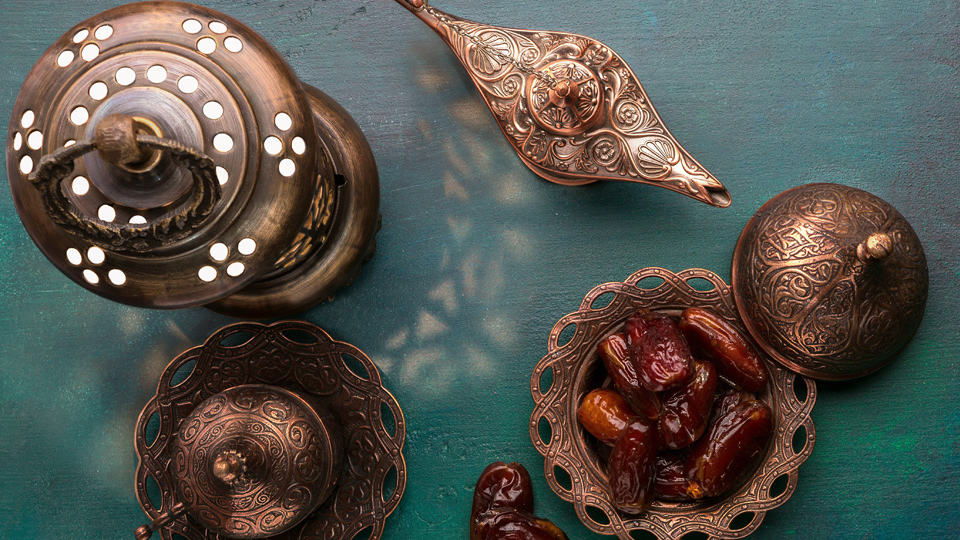
The holy month of Ramadan is traditionally known as a month for prayer, fasting and abstinence. Ramadan in 2024 will begin on Sunday, 10 March 2024, and end on Tuesday, 9 April 2024.
Fasting during Ramadan carries a high risk of dehydration and low sugar since food and drink are limited to before sunrise and after sunset. Furthermore, as fasting individuals are encouraged to wake up very early to have their Suhoor (or pre-dawn meal), headaches, fatigue, lack of concentration can result from possible sleep deprivation.
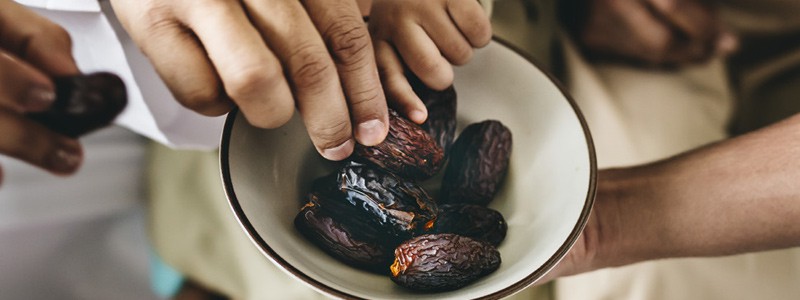
The following are some tips on fasting healthily and safely during Ramadan:
1. Do not skip Suhoor (Pre-dawn meal)
As the saying goes, “Breakfast is the most important meal of the day.” During Ramadan, this carries even more truth. Skipping Suhoor to catch up on sleep could do more harm than good. Skipping Suhoor prolongs the fasting period, which means that your body will need to rely on the previous meal to provide you with all the energy until Iftar (breakfast). Due to the long hours of fasting, the risk of dehydration and low glucose increases. Skipping Suhoor encourages the likelihood of overeating during Iftar, which in turn leads to unhealthy weight gain.
2. Do not overeat during Iftar (breakfast)
Just as it is not advisable to skip Suhoor, overeating when it is time to break the fast can harm your body. Iftar should be a well-balanced, nutritious meal and not a feast. Overeating and excessive consumption of high-fat foods, in particular, may result in indigestion and weight gain. Such eating habits would be detrimental to those with underlying chronic diseases such as diabetes, high cholesterol or heart disease.
3. Avoid eating fried foods, salty foods and high-sugar foods
It is not uncommon for fasting individuals to indulge in greasy, fried and sugary dishes during mealtime. Aside from the unhealthy weight gain, consuming fatty and sugary foods can also lead to indigestion, affecting fasting the following day. Also, you should limit salt intake, especially during Suhoor (pre-dawn meal), as this increases thirst during the fasting period. As much as possible, include foods from all the major food groups, such as fruit and vegetables, rice and alternatives, meat and alternatives. Consuming fibre-rich foods during Ramadan is also ideal as our body digests them slower than processed foods, ensuring that you feel fuller for an extended period.
4. Drink as much water as possible

What to eat during Ramadan
FOR SUHOOR (PRE-DAWN MEAL) Drink plenty of fluids and choose fluid-rich foods to make sure you are well hydrated for the day ahead. Go for starchy foods for energy, choosing high fibre or wholegrain varieties where possible as these can help keep you feeling fuller and can aid digestion, helping to prevent constipation.
Fruits and vegetables
Fruits and vegetables are essential during fasting as they are full of fibre and enhance the feeling of fullness while preventing constipation. They also contain vitamins, minerals and phytochemicals that are vital for good health.
High-fibre carbohydrates
These would include foods like brown rice, wholemeal bread, oats, cereals. They take longer to digest and thus help to sustain energy levels longer.
Meat and alternatives
Skinless chicken, fish and low-fat dairy products provide a great source of proteins while limiting fat intake. Furthermore, they help repair and build body tissue. Consuming high-calcium dairy products also helps maintain strong bones. Those that are lactose intolerant can choose lactose-free milk or calcium-fortified soybean milk.
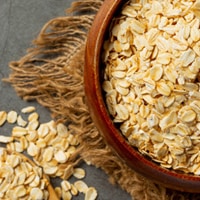
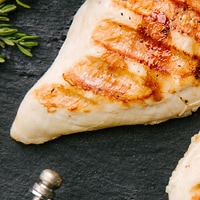
FOR IFTAR (DINNER)
Iftar is the time to replenish energy levels. It would be best to consume foods from all major food groups: fruit and vegetables, rice and alternatives, meat, and its alternatives (including dairy).
Fruit and vegetables
As the Health Promotion Board (HPB) recommends two servings of vegetables and two servings of fruit per day, make sure you have one serving of fruit and one serving of veggie at each of your two meals. Traditionally during Ramadan, dates are eaten at the start of Iftar to symbolise the breaking fast. Being an excellent source of energy and potassium, they help muscles and nerves to function well. However, remember not to consume too much as dates are high in sugar.
Rice and alternatives
Wholemeal bread, brown rice or wholegrain noodles are complex carbohydrates that provide the body with energy, fibre and minerals. Compared to sugary foods and desserts, they provide more stable and sustainable energy levels.
Meats and alternatives
Incorporate protein-rich sources such as lean meat, skinless chicken, fish, eggs, legumes and low-fat dairy products.

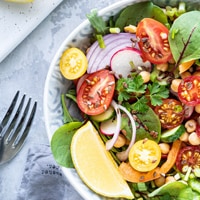
To keep your meals healthy, limit using oil for cooking and opt for steaming, grilling, baking or shallow frying instead. When choosing oils, you should also pick those high in unsaturated fats such as canola oil and soybean oil.
Use this Ramadan to cultivate good dietary habits. By the time the fasting month ends, you will feel healthier.
Be the First to Know!
Like what you see? Receive more health and wellness articles from Raffles Medical Group to aid you in leading a healthy lifestyle.


